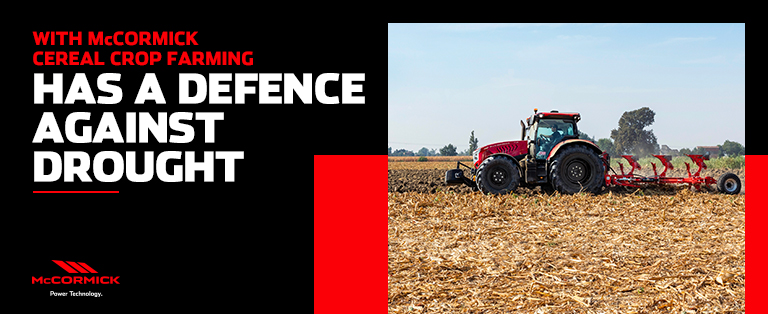WITH MCCORMICK CEREAL CROP FARMING HAS A DEFENCE AGAINST DROUGHT

Table of contents:
Aridoculture as a contrast to drought
In addition to the various sustainable water management choices, there are various techniques to cope with the drought emergency, a result of the climate change process for which human activities are also responsible.
One of these alternatives is called aridoculture and consists not only in reducing water losses and therefore helping improve water availability, but also in choosing crops that are better adapted to situations of water scarcity.
In cereal cultivation, for example, the choice of the best crops to grow may turn to so-called winter cereals such as wheat, barley, and oats. The former is the main arid-resistant crop and, in specifically durum wheat is even more resistant than soft wheat. Barley is even tougher than wheat, and specifically 6-row barley is tougher than 2-row barley and non-hulless barley is tougher than hulless barley.
In addition to these, we can choose rye, which is very rustic and has a great ability to survive and grow abundantly in arid areas.
In those areas where, thanks to rainfall, the availability of water is somewhat greater, it is also possible to cultivate summer cereals in dryland cultivation such as sorghum and maize. However, an important thing is to consider undersized varieties and adopt moderate nitrogen fertilisation to limit vegetative growth.
Pearl millet can also prove to be a good crop in drought situations. It is in fact a cereal typical of warmer, tropical and subtropical areas.
McCormick X7 SWB: cereal farming has never been easier
The X7 SWB range comes with new Stage V emission engines and the tractors are equipped with new FTP NEF 45 drive units, 16-valve, 4.5-litre 4-cylinder engines and FTP NEF 67, 24-valve, 6.7-litre 6-cylinder engines with Turbo Intercooler and Common Rail electronic injection.
These machines are ideal for open field work with a maximum allowed weight of 11,500 Kg and a maximum rear wheel of 710/60R38, which offers greater stability and comfort during transport and less soil compaction in field operations.
The innovative part of the engines of this series lies in the fuel injection strategy, which leads to increased responsiveness, lower fuel consumption and improved emissions in all forms of movement.
The speed ranges go from a minimum of 0.04 km/h to a maximum of 50 km/h which favours productivity in every working environment.
Thanks to tractors like these, all the operations necessary to start new crops are facilitated, from ploughing to harvesting.
McCormick technology, agriculture 4.0 at your fingertips
With all open field work you will have constant digital support when choosing McCormick. Thanks to the brand new MyMcCormick app, you will be able to directly access advanced digital solutions to improve your work and express the full potential of your tractor.
Manage your fleet directly and in a unified way with McCormick Fleet & Remote Diagnostic Management. Monitor agronomic data with the McCormick Farm function.
Finally, McCormick Precision Drive for satellite guidance and McCormick Power Service for scheduled maintenance are additional pluses that will keep you in control of all phases of your operations.
Aridoculture is a solution that we would never want to resort to, at least not for critical situations such as the one we are facing today. But we have to do everything to live with climate change as best we can, and when working in these new climatic conditions McCormick is your ally.
